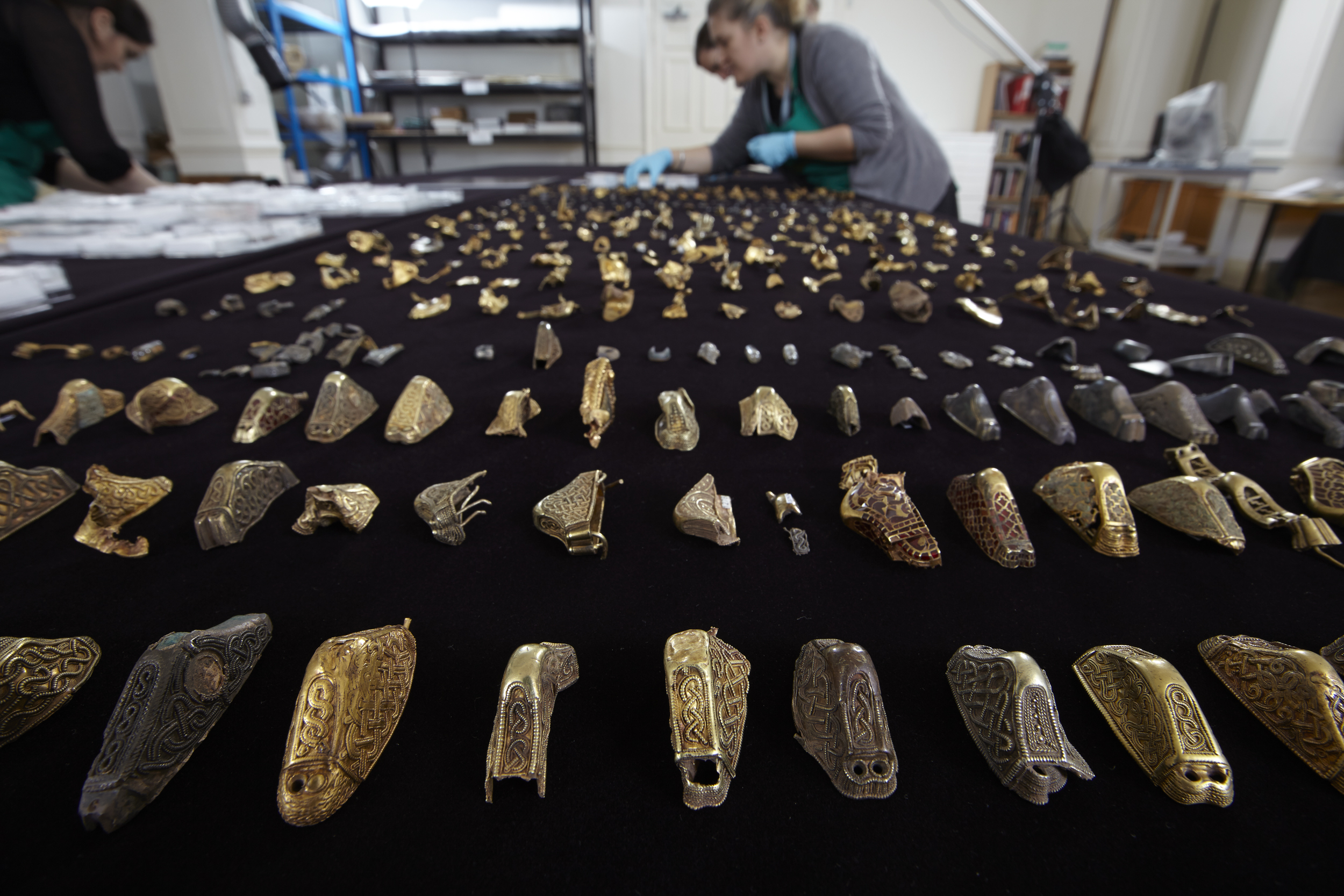Story Of A King

The cross artifact that was found in the hoard was believed from the period when the Northumbrian king Oswald ruled. During the Battle of Heavenfield in 634, “set up the sign of the holy cross and, on bended knees, prayed God to send heavenly aid to His worshippers in their dire need.” When the war ended, ” He and his men then “gained the victory that their faith merited.” Surprisingly, one of the crosses from the hoard was also bent and folded, like other pieces in the hoard.
Handy Weapon

The thin strip of gold that was found in the hoard has some text written on it, “[S]urge d[omi]ne disepentur inimici tui et [f]ugent qui oderunt te a facie tua—Rise up, Lord, may your enemies be dispersed and those who hate you flee from your face.” The researcher suggests that this piece of text is from the Latin Vulgate chapter of Numbers 10:35 and Psalm 68:1.
Hadrian’s Wall

“The hoard was found on a frontier zone, which is always interesting, It was on the border between Mercia and Wales,” said Kevin Leahy author of the Staffordshire Hoard. Around 650, a battle was found between the Mercians and their neighbor Welsh. The loot was taken through the old Roman road Watling Street, which is the same site where the treasure was found. But who knows what was is the real story of the treasure.
History Of Anglo-Saxons

The Anglo-Saxons were a group of people who occupied Great Britain in the 5th Century. The major population of Anglo-Saxons consisted of the Germanic tribes who immigrated this place from continental Europe. The Anglo-Saxon period is considered as the period when the English Nation was created.
More About Anglo-Saxons

Christianity took its root during the period of Anglo-Saxon, which later helped in the growth of literature and language. Codes and laws were also placed during this period only to make the population live in a certain way. In the 5th century, Anglo-Saxon was the language which was spoken and written by the people in England and eastern Scotland. The scholars called this language Old English.
Seven Kingdoms

Even after the arrival of Anglo-Saxons, England as a country didn’t appear for the next 100 years. Instead, seven important nations ruled the areas, including, Northumbria, East Anglia, Essex, Sussex, Kent, Wessex, and Mercia. These nations were independent, spoke the same language and were similar in culture-wise. Their favorite activity was obviously war.
